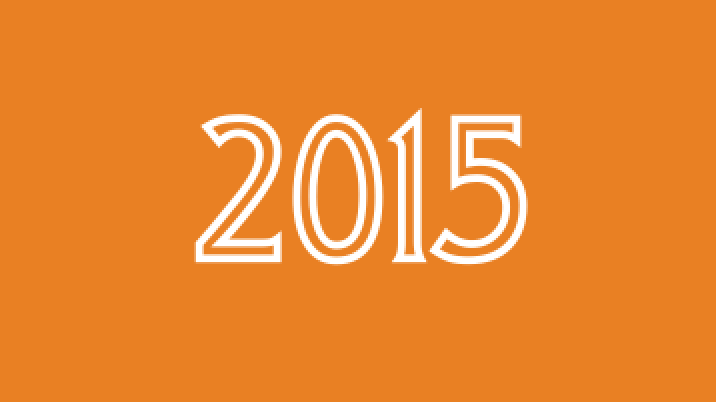 Since 2010, LSE MPP director Damian Tambini has been working on a 60 country study of media policy around the world. He was recently commissioned to write a global overview of public service broadcasting for the project. As the UK Parliament’s Inquiry on the BBC packs its bags for a mission to study PSB in the Netherlands, Denmark and Germany, he reflects on what they might find, and what UK policy should learn from PSB around the world.
Since 2010, LSE MPP director Damian Tambini has been working on a 60 country study of media policy around the world. He was recently commissioned to write a global overview of public service broadcasting for the project. As the UK Parliament’s Inquiry on the BBC packs its bags for a mission to study PSB in the Netherlands, Denmark and Germany, he reflects on what they might find, and what UK policy should learn from PSB around the world.
With some other European countries phasing out TV licence fees as a mode of funding PSB, and the EBU openly discussing alternative mechanisms, a robust debate about the BBC licence fee was inevitable. The threat of decriminalisation makes it urgent. Without strong sanctions large numbers will not pay, particularly during PSB-related scandals. In Japan, where the licence fee is not backed by legal sanctions, a scandal in 2004 led to widespread non-payment and a £68m hole in the NHK accounts.
Given the recent scandals at the BBC, including those relating to weak financial oversight, real empowerment of licence fee payers might appear to be progress. But volatility of the license fee during – say – a social media fuelled ‘civil disobedience campaign’ around Jimmy Saville, might make the BBC unmanageable, and there are surely better ways to improve BBC accountability to citizens.
Funding PSB through a licence fee on receiver devices –television sets, but also for those watching live, on PCs and other devices- has never been an efficient funding mechanism. Rather it was a least-worse solution. As Bart Cammaerts argued on this blog, the reasons we have retained the fee so long – that it protects BBC independence and establishes a direct connection between the Beeb and licence-fee payers – are questionable.
It would be unfortunate if the decriminalisation issue bumps us into a rushed debate about the size, scope and remit of public service in digital media. If there is to be a shift to a more progressive and efficient funding mechanism, the government should make it clear at the start that their policy is not to use a funding change – or the debate itself – to reduce the size, or the independence of the BBC. No one wants ministers stomping all over broadcaster independence, but they can lead policy in this field, and can set out long-term policy objectives. Without clarity about the ends, it becomes impossible to have a debate about the means.
One of the surprising findings of the MDM study was the politicised messiness and contestedness of broadcasting policy worldwide. Des Freedman voices the concerns of many defenders of the BBC who see decriminalisation as an attack. In an atmosphere of mistrust and politicisation it is impossible to reach a pragmatic solution, but the government could lead on this issue. Maria Miller can in the short term make clear that any new funding mechanism should maintain the overall level of BBC funding in relation to RPI over the next charter period and commit to funding any shortfall. As the BBC approaches its centenary we also need to look at ways of garnering cross party support for the long-term principle that the BBC does have a permanent role in the UK Media, not one restricted to ‘The Broadcasting Century’.
The CMS Select Committee is currently conducting an Inquiry into the future of the BBC, including a tour of countries with similar broadcasting systems. Hopefully this will offer the potential for a wider perspective.
In the countries they will visit the Committee will see similarities with the UK debate, but fundamental differences too. In each of the media systems the PSB has a large, public broadcaster in terms of TV and radio audience share, and significant online activities: in each of them the question of remit, funding and scope of services has been highly contested. And despite some fundamental differences (Germany and the Netherlands have less centralised public service broadcasters) the terms of the debate have been similar to the UK: because of a lack of clear long-term political commitment to PSB, chronic uncertainty about scope of the PSB has undermined planning and encouraged the PSB to invest more resource in lobbying activities.
In Europe as a whole, the burden of PSB funding is shifting away from Licence Fees and onto taxation. In Germany, a new system came into effect in January 2013 whereby PSB funding will be levied on every household, rather than receivers. In the Netherlands, the PSBs are effectively membership organizations, with the 20 or so PSBs in the process of being merged into 8. It is the decentralised, federated structure which makes independence less of a problem in Germany and the Netherlands, and should raise questions about just how to build safeguards into a taxation model if it was considered for the UK.
The Select Committee is asking about the licence fee, but also the wider questions:
- What should the BBC be for and what should be the purpose of public service broadcasting?
- Are the public purposes in the current Charter the right ones? How might they change?
- What scope, scale and remit should the BBC have?
The MDM reports show that the central challenge is to come up with a remit that is both clear enough to be a standard to hold broadcasters to account whilst giving competitors some certainty, and flexible enough to allow them to serve the public in the digital age. The existing public purposes of the BBC actually do this rather well. Alternative models, such as remits that are based on fundamental rights, as in some South American Countries such as Chile or Peru or more specific broadcasting roles, compare unfavourably. The notion of Public Value was developed at the BBC, and is now the EU standard for public service in broadcasting, providing some certainty for investment in media within the EU regulatory framework. This does not need to change.
- How should the BBC be governed, regulated and held accountable beyond 2016?
What is clear given the international experience is that however clear the remit, regulation will always be an art rather than a science. Indicators of public value can be agreed but there will always be an element of judgment, and this should not lie with politicians. The importance of robust external accountability has been underlined by recent events. As the role of Ofcom spreads across Postal services and a range of other media there is surely an argument for regulatory plurality, so this is surely about beefing up the role of the Trust, and reforming external audit – rather than extending the Ofcom empire.
Damian Tambini’s report on public service media around the world will be published next month by the Open Society Foundation. This article gives the views of the author, and does not represent the position of the LSE Media Policy Project blog, nor of the London School of Economics. ![]()





